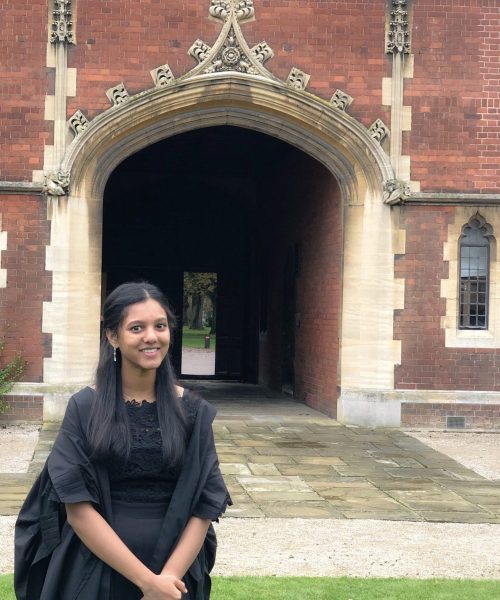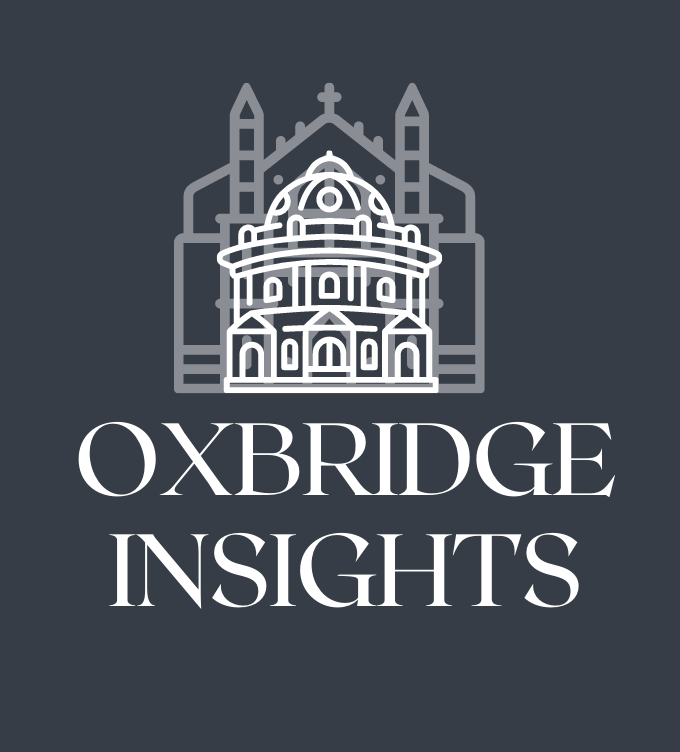
Hi! I’m Amina and I study History and Modern Languages at Jesus College, Cambridge. When applying to university, I knew I wanted to emerge with the skill of speaking a language and the experience of a year abroad, but I couldn’t bear the thought of giving up history for an MML degree. I’m so glad I picked the joint-honours HML course at Cambridge; it’s a challenging but rewarding one that perfectly encapsulates the best of history and the best of language!
This course is designed to be half of a history degree, and half of an MML degree. You belong to two different faculties and teaching for History and your chosen language are conducted separately through different departments.
For history, you’ll have one supervision a week, prior to which you’ll prepare a 2,000-2,500 word essay. You get to choose your history papers, and some of the topics within these papers, which is really nice. For each essay you’ll attend one or two lectures.
For French, I didn’t get as much choice in first year. You’ll have a fortnightly translation class, for which you prepare a translation, and a fortnightly literature supervision, for which you’ll prepare a 2,000 word essay (in first and second year, literature essays are written in English!). These essays will be on set texts that you’ll have read over the holidays and will be accompanied by around 4 lectures each. You’ll also have a weekly grammar class and an oral supervision, for which some preparation is usually required. In second year you’ll get more choice – there’s even the option to pick up a new language instead of doing a literature paper!
After first year you can also weight the degree towards history or your language according to your preference! It’s a lot of work, but as you get into the swing of things, you’ll become better at managing your time and you’ll learn what works best for you. And there is always space to make time for things you enjoy; I’ve developed a mindset of structuring my work around doing things I enjoy, not the other way round!
Interviews may differ slightly from college to college, but I’ll talk you through mine. I had two interviews, one for French and one for History.
I had a pre-interview history test and an at-interview French test. These are source-based and don’t require any prior knowledge, so don’t worry too much, although it’s probably a good idea to try some practice papers (which you can find on the course website) so you’re familiar with the format.
The history interview was a general interview, in which we discussed my personal statement and historical interests. It was an interesting discussion and I found that my shaky nerves faded as we got into the conversation. My top tip is to speak your mind and don’t be afraid to change your mind! The interviewers don’t want to see perfection, they want to see someone who’s willing to learn and appreciates the complexity of a debate.
For the French interview, I was given ten minutes to read an extract from a French text. Take time to understand the general gist of the text – highlight parts you are finding tricky to understand and consider potential meanings. The first half of the interview was conducted in French, in which I was asked to summarise the text and discuss techniques used by the author. We then switched to English, and they asked me to translate a sentence from the text. Don’t worry about providing a perfect translation – what’s more important is that you talk them through your thought process behind the translation. Explain why you chose certain translations and explore other potential meanings. My translation was littered with mistakes, but we had an interesting discussion about the various potential meanings of certain words, and they helped me come to better conclusions; the interviewers want to see you embracing the complexity of translation, not a flawlessly translated sentence! We then moved on to general questions relating to my personal statement and books that I’d read. The interviewers will let the conversation develop naturally, so don’t worry if questions become quite abstract – we ended up talking about what actually makes a piece of text ‘literary’: the discussion didn’t have any direct relation to French at all! Try your best not to overthink after the interview; there really is no right or wrong answer or conversation topic, this is genuinely just an exploration of your thoughts and interests!
One thing I wish I knew before applying is that you don’t have to read a million books for both History and your chosen language!! I remember panicking in the summer of year 12 because I felt I hadn’t read enough books. It’s tricky balancing the two subjects in your personal statement, and one easy way you can address both subjects at once without having to read a ton of books is by reading books that simultaneously relate to history and language. For example, I read some French classics by Emile Zola, which were written during the time of the French Industrial Revolution. I also read books on the role of women in the French Resistance. These reads meant I could talk about them from the perspective of a historian and the perspective of a linguist in my personal statement. Also, listen to podcasts! They are such an easy way of covering lots of different topics, debates, and themes in a short space of time. You can also find plenty of lectures online on topics that interest you. The most important thing is not whether you are reading books, listening to podcasts, or visiting museums, but that you are engaging with super curricular content that genuinely interests you. Admissions tutors want to see your passion – so if the book’s boring, give it a toss and pick up another one!
The History and Modern Languages course at Cambridge is challenging, but it’s incredibly rewarding, and if you are passionate about the two subjects, it’s 100% doable and can be a lot of fun! Best of luck with your application – and have confidence in yourself. Don’t panic if you’re finding the application process stressful; it’s supposed to be difficult – embrace the challenge and enjoy the journey!
